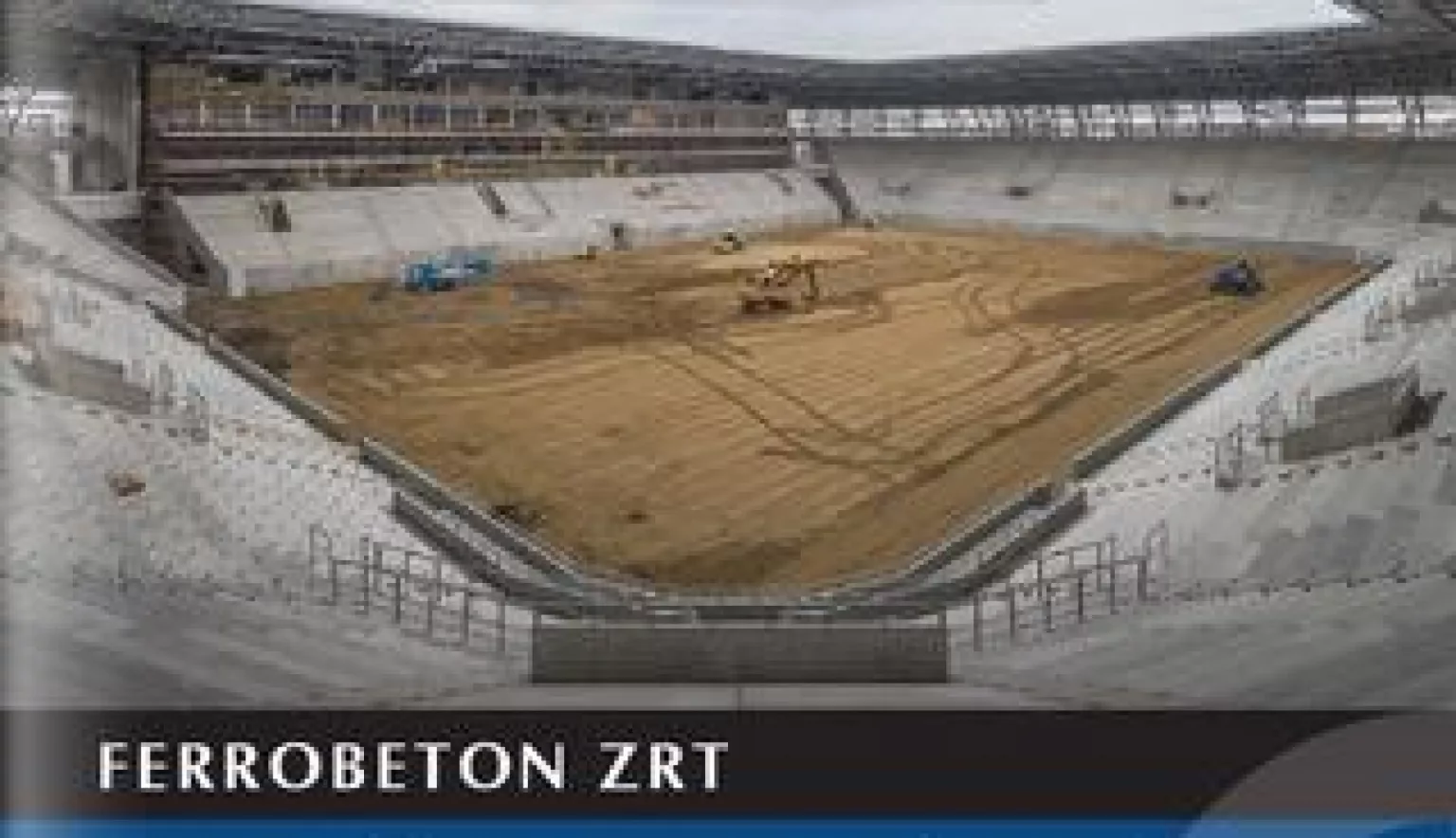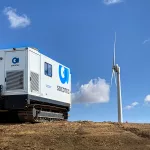Ferrobeton, a pioneer of high quality and innovative prefabrication solutions, has weathered the financial crisis and emerged in 2015 with a new aptitude for construction and infrastructure projects.
As a key player in the prefabrication and reinforced concrete industry in Hungary, Ferrobeton Zrt remains one of the largest companies nationwide in this field, reporting annualised sales of €80 million. With its wide product range and market presence 64 years in the making, the Company has the available capacity and considerable expertise to meet individual concrete needs on time and on budget; proving itself “worthy of the trust of our future partners”.
Usually taking on the role of subcontractor focusing on the body construction – from the foundation through to the final reinforced concrete construction – Ferrobeton enjoys an excellent reputation for its quality of work. “Our work is our marketing,” said the Company’s Chief Executive Officer (CEO), Zoltán Vass. “You will hardly find any projects with prefabricated concrete elements where we are not involved. We participate in more than 90 percent of projects in Hungary.
“From planning structures and products through the production and delivery stages to the execution of complete structural construction works, we provide a total solution that is tailored to the needs of the market,” highlighted the CEO.
Since inception in 1951, Ferrobeton has been considered a pioneer of the development of prefabrication, placing a concerted focus on its continuous improvement strategy at its four facilities in Hungary to achieve better product quality and modernise its facilities through the use of new technologies. The Company further added: “This comes as a result of our desire to keep up with the latest industry trends and transform the Company in line with present day industry demands.”
REGIONAL COOPERATION
Since 2008, Ferrobeton has been operating as a subsidiary of the CRH Group in the Southeast European region. CRH, with its headquarters in Ireland, operates in 34 countries and employs close-to 90,000 people. “The acquisition of Ferrobeton saw the Group enter Hungary for the first time, expanding and strengthening our concrete products business in Eastern Europe, serving as a platform for future growth in the region,” CRH Group confirmed in a statement at the time.
However, European building and infrastructure markets were hit hard by the financial crisis in 2008-2009 which had a knock-on effect on delivery of some of Hungary’s major construction projects at the time. Thanks to regional cooperation across the Group’s production facilities at seven sites in four countries (Hungary, Slovakia, Romania and the Ukraine), Ferrobeton has been able to access a significantly larger pool of resources, a bigger product range and flexibility regarding capacity; all contributing to the creation of tangible benefits for its business partners and making the Company more attractive to wary investors.
“The years that followed the initial crisis have been difficult, and the market has shrunk continuously which has indicated the need to diversify by supplying our reinforced concrete to consumers as well as professional clients. We were able to leverage Group expertise from a proven model of business improvement and work with other companies and subcontractors locally in order to both grow Ferrobeton’s presence in the country and combat the crisis,” said Vass in an interview.
He continued: “My challenge was to integrate Ferrobeton into the CRH network as well as possible, and I believe that the Company is now well-positioned for a construction industry boom.”
For now, the Company has adopted an infrastructure and subcontractor focus, which includes activities such as building beams and bridge parts for motorways and telecommunication applications, and supplying the rail industry with sub-constructions. “We aim to enhance our activities in the railway and bus sector in particular,” emphasised Vass.
STRATEGIC POSITION
Ferrobeton’s enhanced geographic position and fruitful strategic partnerships means that it can take advantage of good road connections and direct rail links where feasible, enabling the safe transport of the Company’s extremely heavy products to any construction site, with heavy loads often weighing up to 80 tonnes.
“Being in close proximity to the river ports allows us to exploit opportunities provided by water transport. Our construction team has already proven its abilities not only in the assembly of structural elements produced by us, but also in foundation and monolithic works and the construction of steel structures,” said the CEO.
“Further, our activities extend beyond the traditional domestic market, through facilities in building construction, industrial, commercial and communal areas to road, rail, underground and hydraulic construction in infrastructural projects. For example, we possess 40 stressing beds with an average length of 100 metres for the production of pre-stressed beams, floor and pillar structures at four sites in Hungary,” the Company explained.
In order to ensure a more effective market presence, Ferrobeton has brought several elements of its supply chain in-house, including its design and development units. “The design and development side of the organisation maintains an ongoing working relationship with other design bureaus, both home and abroad, in order to fully integrate into the local industry scene,” Vass said on the Company website.
These relationships have resulted in several large development projects during recent years including the development of large-span building structures and bridge beams, railway construction elements and frame elements, as well as their production technology.
Moreover, in 2010, Ferrobeton saw all of these improvements pay off, winning the ‘Innovation Prize of the National Office of Intellectual Property’ for the development of the pre-cast reinforced concrete bridge baulk family.
COURAGEOUS FUTURE
Backed by the support of its parent company, Ferrobeton is keen to explore new markets, technologies and innovative techniques that will benefit the prefabrication industry. “Today, Hungary acts as a central hub for Slovakia and Ukraine, and we have always had the courage to try to be first-movers in terms of bringing new technologies and developments into these markets,” said Vass.
Innovation continues to be a key driver for Ferrobeton, which is a factor that saw it through the 2008 crisis. Vass concluded: “Whenever we received instructions for a huge order, we were ready to accomplish it. This was one of the salient factors that not only keeps us ahead of the competition, but it demonstrates our resilience and ability to weather the financial crisis and emerge even stronger.”























